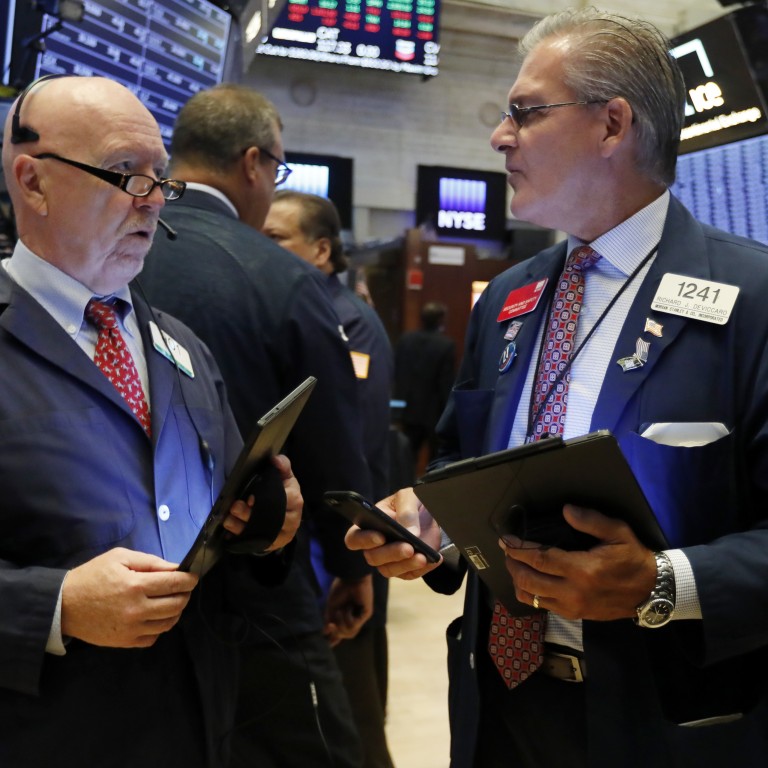
China points finger at US trade war after US$940 billion sovereign wealth fund suffers negative growth in 2018
- China Investment Corporation (CIC) saw a 2.35 per cent negative return on its overseas investment portfolio in 2018 in contrast to the gain of 17.6 per cent in 2017
- Fund general manager Ju Weimin says trade tensions have led to a ‘more cautious view’ of the situation in the United States, which ‘we are watching closely’
China’s US$940 billion sovereign wealth fund posted a loss last year, with officials pointing to the escalation of trade war with the United States, frequent geopolitical disputes and the slowdown of major economies as the culprits for the weak performance.
Rapid changes in financial markets and the regulatory environment last year tested big institutional investors, including the China Investment Corporation (CIC), with the 2.35 per cent negative return on its overseas investment portfolio in 2018 in stark contrast to the gain of 17.6 per cent recorded in 2017.
“The situation remained complicated this year. The disruption being caused by political factors will get bigger and bigger as the US enters the [presidential] election cycle in the second half of this year,” said CIC chairman Peng Chun, who was appointed in April having previously served as Bank of Communications chairman.
“Some Western countries have also tightened foreign investment policies, while Chinese companies were treated with rose-tinted glasses or prejudice.”
The situation remained complicated this year. The disruption being caused by political factors will get bigger and bigger as the US enters the [presidential] election cycle in the second half of this year,
Despite the drop in its return last year, CIC’s annualised return over the last 10 years, used as an internal appraisal benchmark, stood at 6.07 per cent.
“We will make better use of China factors – Chinese market, economic transformation and deeper integration into the world – to counter a variety of overseas uncertainties,” added Peng, who suggested targeting investments in countries involved in China’s Belt and Road Initiative, in Beijing on Friday.
Last year, the US stepped up its review of Chinese investment in American companies, citing national security reasons.
“We won’t intervene in the daily operations of the companies we have invested in, nor do we pose any threat to national security,” CIC general manager Ju Weimin said.
The sovereign wealth fund last year slashed the proportion of stocks in its overseas portfolio, but also increased alternative investments, such hedge funds, real estate, commodities, infrastructures and direct investment.
Stocks accounted for 38.3 per cent of the funds' overseas investment portfolio in terms of value last year, compared to 43.6 per cent in 2017, while the share of alternative investments rose to 44.1 per cent from 39.3 per cent, the 2018 annual report showed.
The CIC has launched a variety of bilateral funds with local partners to facilitate its investments. It teamed up with Goldman Sachs to set up a China-US manufacturing investment fund which has risen to US$3 billion after three rounds of fundraising. The fund made its first investment in the past year, it said.

